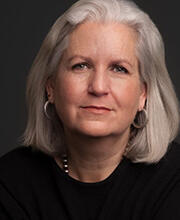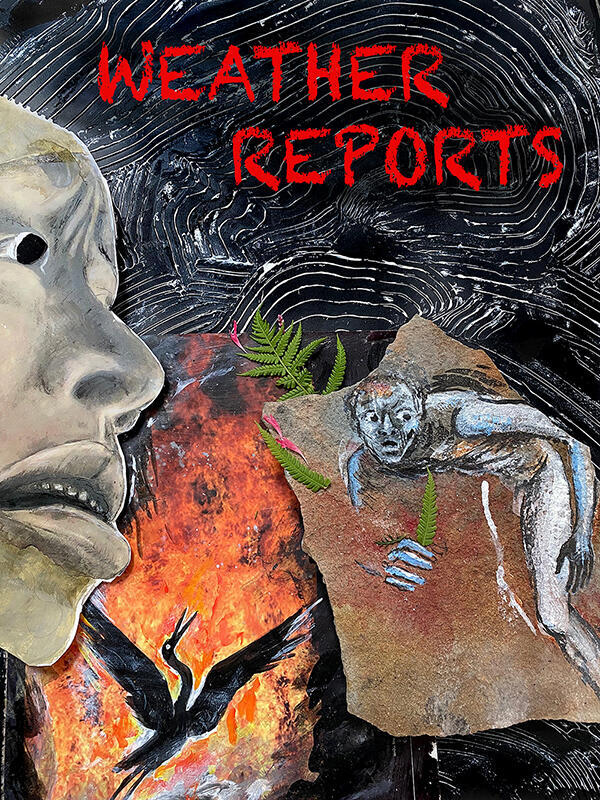The Climate of Now: A Series of Online Conversations
Cuppa Tea with Terry Tempest Williams
Mondays, 7– 8:30 pm (Eastern Time Zone)
Harvard Divinity School
Fall Semester 2021
In the course of history, there comes a time when humanity is called to shift to a new level of consciousness, to reach a higher moral ground. ... A time when we have to shed our fear and give hope to each other. That time is now. —Wangari Mathai
 Brian Kirbis of Theasophia will open each conversation with a tea pouring. Each conversation will begin at 7 pm and end at 8:30 pm., conducted online by Terry Tempest Williams, writer-in-residence at Harvard Divinity School. Respondents from Harvard Community will lead Q&A session from 8 to 8:30 pm.
Brian Kirbis of Theasophia will open each conversation with a tea pouring. Each conversation will begin at 7 pm and end at 8:30 pm., conducted online by Terry Tempest Williams, writer-in-residence at Harvard Divinity School. Respondents from Harvard Community will lead Q&A session from 8 to 8:30 pm.
This series is a Constellation Project in partnership with the Center of the Study of World Religions, Religion and Public Life, and the Planetary Health Alliance.
September 20
A Burning Testament to Climate Collapse
Lucy Walker, film maker
View the recording of "A Burning Testament to Climate Collapse."
Following the aftermath of the 2018 Camp Fire (the deadliest in California’s history), British film maker Lucy Walker directed “Bring Your Own Brigade” (2021). The film urgently asks: why are catastrophic wildfires increasing in number and severity around the world, and what can be done about it? Clips of the groundbreaking film will be shown throughout the conversation, even as the American West continues to burn.
Respondent: Teresa Cavasas Cohn, University of Idaho, RPL Climate Change Fellow
September 27
The Climate of Sacred Land Protection
Bernadette Demientieff, Gwich’in activist
View the recording of "The Climate of Sacred Land Protection."
Bernadette Demientieff, Executive Director of the Gwich’in Steering Committee, will discuss why sacred land protection matters to indigenous communities. Learn how her community in Alaska is standing strong to protect the Arctic National Wildlife Refuge—Coastal Plain from becoming an oil and gas reserve. “Our identity is non-negotiable,” she says. “We will never sell our culture and our traditional lifestyle for any amount of money.”
October 4
The Climate of Relationships and Intersectionality
Morgan Curtis, climate activist
HDS student brontë velez ‘24, Black-latinx transdisciplinary artist
View the recording of "The Climate of Relationships and Intersectionality."
Morgan Curtis and brontë velez will discuss the intersectionality of race, class, gender, and climate collapse, and how seeing the world whole through the lens of relationships creates communities of care rather than conflict. They will consider what reparations might look like on behalf of racial justice and justice for the Earth, and why it is critical to find a radical, intergenerational, diverse and dynamic dialogue that calls for a global paradigm shift.
Respondent: Melissa Wood Bartholomew, Associate Dean of Diversity & Inclusion, Harvard Divinity School
October 18
The Climate of Compassion for all Beings
Janet Gyatso, Hershey Professor of Buddhist Studies and Associate Dean for Faculty and Academic Affairs at Harvard Divinity School
View the recording of "The Climate of Compassion for all Beings."
We are not the only species that lives and loves and grieves on this planet. Janet Gyatso will focus on the phenomenology of being not just among humans but with all other sentient beings. How we can cultivate the capacity to have such experiences, in ways that might reform our ethical and spiritual practices? How might compassion and an understanding toward animals heighten and mirror reciprocal relationships toward each other. What does it mean not only to be human, but one species among many?
October 25
The Climate of Grief
Victoria Chang, poet
View the recording of "The Climate of Grief."
Victoria Chang writes in her New York Times Notable Book of 2020, Obit, “I always knew that grief was something I could smell. But I didn’t know that it’s not actually a noun but a verb. That it moves.” After the deaths of her parents, she refused to write elegies; instead, Chang wrote poetic obituaries of the beautiful, broken world that surrounds her (many see them as love letters). How does poetry illuminate this time of uncertainty? How do we embrace grief and not look away from all that is breaking our hearts? What we thought was a pause is now a place, and grief is part of this place.
Respondent: Jorie Graham, Poet, Harvard English Department
November 1 (live streamed)
The Climate of Consciousness
Michael Pollan, writer
View the recording of "The Climate of Consciousness."
Michael Pollan has been educating us with illuminating prose on “the botany of desire” for a very long time. He will discuss his latest book This Is Your Mind On Plants and his landmark bestseller How To Change Your Mind: What the New Science of Psychedelics Teaches Us About Consciousness, Dying, Addiction, Depression, and Transcendence. Pollan’s call for change, restoration, and resiliency may be the very thing we need to bolster our consciousness in the midst of climate collapse.
Respondent: Charles Stang, Director of the Center for the Study of World Religion
November 8
The Climate of Resistance
Chloe Aridjis, award-winning novelist, Sea Monsters (2020) and organizer for Writers Rebel
Wanjira Mathai, Regional Director for Africa at the World Resources Institute
View the recording of "The Climate of Resistance."
Activists Aridjis and Mathai are powerful, fierce, compassionate leaders in the global environmental movement. A writer and an organizer, they are also the daughters of iconic conservation heroes: Homero Aridjis, a Mexican poet who started Grupo de Cien to save the monarch butterflies in the forests of Michoacán; and Nobel Peace Laureate Wangari Mathai of Kenya, founder of the Green Belt Movement, which has planted more than 51 million trees since 1977. Aridjis and Mathai will discuss how conservation is a generational stance and share what they are seeing, feeling, dreaming and doing as women leaders of their generation.
Respondent: Geralyn Dreyfous, film producer, Impact Partners
November 15
The Climate of Attention
Elizabeth Kolbert, New Yorker staff writer
View the recording of "The Climate of Attention."
Few have covered the climate crisis as deeply and as thoughtfully as Elizabeth Kolbert. Her work includes Field Notes from a Catastrophe (2007), the Pulitzer-prize winning The Sixth Extinction (2016), and her latest Under a White Sky (2021), “a book about people trying to solve problems caused by people trying to solve problems.” She discusses what “a good Anthropocene” might look like, from managing fish in the Midwest to geo-engineering the atmosphere to turn our blue sky white.
Respondent: Samuel Myers, Director of Planetary Health Alliance
November 22
The Climate of the Future
Kim Stanley Robinson, novelist
View the recording of "The Climate of the Future."
Kim Stanley Robinson’s thriller The Ministry for the Future (2020) is science fiction that reads as hard-edged journalism. With short chapters and a myriad of characters, Robinson creates a kaleidoscope of perspectives on a global climate collapse coming in 2025. Bill McKibben writes “In Kim Stanley Robinson’s anti-dystopian novel, climate change is the crisis that finally forces mankind to deal with global inequality.” At heart an optimist, Robinson lays out a possible path to move forward with faith in what we can create together in a post-capitalist world.
Respondent: Sarah Dimick, Assistant Professor of English, Harvard University
November 29
The Climate of Community
Brian Kirbis and Su Yimu, Theasophie, A Community Tea Ceremony
For our final Weather Report, tea practitioner Brian Kirbis, who has performed our opening and closing ceremonies each week, and his wife Su Yimu, will join us in a fascinating conversation about Tea Culture in China. Yimu was born and raised in a Mon-Khmer village in the Jingmai Mountains of southwest China, (currently being considered for UNESCO World Heritage status as the oldest tea producing region in the world) known as the heartland of global tea culture. Through their story—the story of Theasophie—we will revisit many of our previous Weather Reports themes in “The Climate of Now.” Tea is one of the most profound means by which plant knowledge and medicine can support the well being of humans. It fosters hospitality within our relationships in a ritual form practiced throughout the world. Tea culture is immanently suited for deepening our connection to self, others and the planet.
December 6
Moving Beyond the Weather Reports: Where Do We Go from Here?
Dana Karout, Emma Thomas, Maisie Luo, and Maya Pace, HDS students
Join us for a panel discussion with students from Harvard Divinity School to discuss themes and questions that emerged throughout the 10-week Weather Report series. During this one hour conversation, students who have been in conversation with Terry Tempest Williams throughout the Weather Reports journey will discuss ways that we can use this series to move the work forward and address the climate crisis both as individuals and as a collective.
Moderator: Anna Del Castillo, Religion and Public Life
